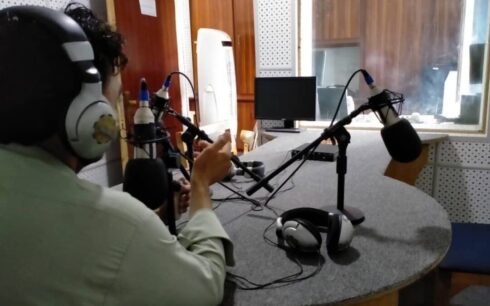Music, an ancient art with roots in ancient Greece, holds a revered place across global cultures. From antiquity, it has been intertwined with spiritual, religious, and philosophical meaning, shaped by scholars such as Pythagoras, Avicenna, Nasir Khusraw, and Al-Farabi. In Persian, Indian, and Buddhist civilizations, music played central roles in courtly life, religious rites, and popular culture, evolving into distinct musical forms over time.
In Afghanistan, music has long been woven into daily life—through songs, melodies, percussion, and folk instruments—deeply connected to the country’s cultural fabric. The introduction of Islam imposed restrictions, but during the Ghaznavid and Barmakid eras, and later with the spread of radio, music experienced a revival. From the 1920s, the establishment of recording studios, Radio Afghanistan, and music schools professionalized the art. A new generation transformed traditional music, and amateur ensembles like “Setareha” and “Chahar Baradar” emerged. Ahmad Zahir, regarded as a pioneer, embodied modern Afghan music.
Drawing inspiration from Western music, amateurs gradually dominated the scene, and institutions like the Faculty of Music at Kabul University gave it academic legitimacy. Media expansion, the migration of artists, and cultural exchanges led to the globalization of Afghan music.
Thus, Afghanistan’s musical journey—from devotional chants and celebratory tunes to powerful expressions of cultural identity—has been shaped by resilience and continues to evolve.
About Ahmad Zahir
Ahmad Zahir, a familiar and authentic Afghan voice, was born on June 14, 1946, in Kabul. His father, Dr. Abdul Zahir, was a prominent political figure who served as head of the National Assembly, minister of public health, and presidential aide. Ahmad Zahir was their third child, with two sisters, Zahira and Balqis, and a brother, Asif.
He attended Masoud Saad School on Tenth Street in Bala Murghab through ninth grade, then graduated from Habibia High School. He pursued Persian literature at Teachers College in Kabul and later earned a master’s degree in Bombay, India. He worked as a journalist at the Kabul Times, headed Afghan Film, served in the Ministry of Information and Culture, and was chief of an amateur music group.
Zahir began his musical journey at age twelve, mastering the mandolin with family encouragement. His debut public performance—a rendition of “Bulbul-e Shuride”—at Habibia High earned him the nickname “Bulbul of Habibia.” Although his father initially opposed his musical ambitions, Zahir was welcomed into the ministry’s amateur ensemble after intervention by Hazrat Hoyda. His first official song, “Gar Kani Nazarah, Mizibad,” was recorded and aired on Radio Afghanistan.
His concerts promoted causes including education, orphan support, prison rehabilitation, and the Red Cross. He performed in Kabul women’s prisons, hotels, and community venues.
Musical style and reach
Zahir was among the first to fuse Western amateur music with Afghanistan’s traditional forms, transforming public taste. He not only appealed to classical aficionados but also popularized upbeat, innovative sounds. His voice became familiar in Iran, Tajikistan, and India.
He toured Afghan cities such as Mazar-i-Sharif, Herat, Pul-i-Khumri, and Kandahar, and performed abroad in Iran—where he was officially invited by the Shah—India, partnering with Lata Mangeshkar, and Tajikistan through cultural exchanges.
A connoisseur of prosody and rhyme, Zahir set poetry by Rumi, Saadi, Forough Farrokhzad, Lahooti, Mehrdad Avesta, Khaghani, Simin Behbahani, and others to music, often using his own verses. He chose lyrics with meticulous care.
Personal tragedy and legacy
In a tragic turn, Zahir was wrongfully imprisoned over the suspected murder of his second wife, Khalida (daughter of Syed Dawood Taroon). He was later exonerated and released through efforts by Zalmay Amin. During his incarceration, he composed moving songs like “Dar Tangnai Tariki Mahbas” and “Benazam Qalb Pakat Madaram.”
He married three times: first to Najia (mother of his son, Ahmad Rashad), then Khalida, and finally Fakhriya, with whom he had a daughter, Shabnam.
On June 14, 1979, Zahir was mysteriously murdered in Salang Pass. Evidence suggests premeditation and possible involvement by state authorities: he was attacked in Chaprigh, beaten, shot, and died at Charikar Hospital. His death sparked grief across Persian-speaking regions and remains shrouded in mystery.
“Darya-ye Gohar”: Preservation of Zahir’s Legacy
Earlier works on Ahmad Zahir lacked comprehensiveness, focusing only on select songs. To fill that gap, Shad Mohammad Sahak compiled a 370-page volume—Darya-ye Gohar. It alphabetizes Zahir’s songs into three sections:
His songs in Persian, Pashto, Hindi, English, and commercial spots.
Interviews with Zhwandoon, Pashtun Ghaz, Afghanistan Times, and two with Radio and Television Afghanistan.
Perspectives from artists in Afghanistan, Tajikistan, and Iran.
The collection includes a DVD of all his songs. I emphasize that the work is apolitical—meant solely to honor the unique voice of Zahir, whose memory continues to resonate.
Shad Mohammad Sahak earned his degree from the Faculty of Literature and Humanities at Baghlan University. He has compiled works by revered writers such as Ustad Betab, Wasif Bakhtari, and Mohammad Karim Nazihi.
The views expressed in this article are those of the author and do not necessarily reflect those of Amu.





